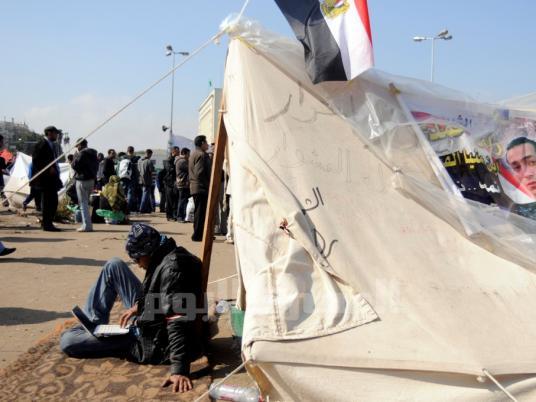
Egypt's religious authorities called on unions and youth groups to scrap plans for a wave of strikes aimed at forcing the ruling generals from power, saying the people must show duty to the nation and spare its tattered economy fresh damage.
The first strike planned from Saturday — the anniversary of Hosni Mubarak's overthrow — would close universities and factories, cancel trains and slash public services.
Analysts say Egypt is in desperate need of foreign support to avert a financial crisis caused by a year of economic and political turmoil. Investment and tourism have shriveled, unemployment has grown and foreign reserves are at danger level.
"I appeal to you … not to disrupt work even for one hour and commit yourselves to meet your duties toward yourselves, your families and your country," Sheikh Ahmed al-Tayyeb, Grand Imam of Egypt's highest Islamic authority Al-Azhar, said in a message to the nation of 80 million people.
In a statement carried in newspapers, Coptic Orthodox Pope Shenouda III said: "Civil disobedience is not accepted by religion and the state does not accept it and there are many verses in the Holy Book that talk of following the ruler."
An estimated 10 percent of Egypt's population is Christian.
The scale of response to the strike call will offer clues to the appetite of Egyptians for more confrontation with the army, which oversaw the first free election in six decades and is pledging to hand full power to elected civilians by mid-year.
Critics say the military will try to keep wielding power from behind the scenes.
The army has deployed extra soldiers and tanks to protect state buildings and public property in the build-up to the strike, which has highlighted deep divisions between liberal and leftist youth groups on one side and the army, Islamist politicians and religious leaders on the other.
Activists say the strike will begin a wave of national disobedience to raise the heat on the military council that took power from Mubarak. They say the council stands in the way of democracy, social justice and individual freedoms.
Many youth activists believe the military must be forced to give up power but say that conventional street protests are failing to exert enough pressure, especially since the election of a parliament dominated by Islamists who oppose confronting the army on the street.
"The strike is just a beginning to carry the revolutionary battle forward, to link political and democratic demands with social and economic ones," said a statement signed by 39 youth groups.
The Muslim Brotherhood, whose party is the biggest bloc in the new parliament, has refused to back the strike.
"This call is very dangerous to the interests of the nation and its future," Mahmoud Hussein, general secretary of the Brotherhood, said in a statement on its website.
A group supporting the military council launched an online campaign entitled "hire me instead," calling on the authorities to fire strikers and hire unemployed people in their place.
Successive street clashes between riot police and revolutionary groups have drawn an angry response from citizens waiting for a return to stability in the hope it will lead to more jobs and less poverty.
At least 15 people were killed in the latest spate of street violence in Cairo and the eastern city of Suez, sparked by the death of 74 people after a soccer match.
Even some of the strike organizers are playing down the prospect of 100 percent success. Labor leaders say they have been spreading calls for strike in workplaces but they still lack grassroots organization to mobilize successfully.
The protests are set to continue spontaneously until May, activists say, to press demands including a return of the army to its barracks, forming a national salvation government, prosecuting those responsible for incidents of violence against protesters and better pay and conditions for workers.
"We are tired of blood and dead people… the military council is the reason behind this," said Sherif Hany of Cairo University student union, which has called for an open-ended strike.




